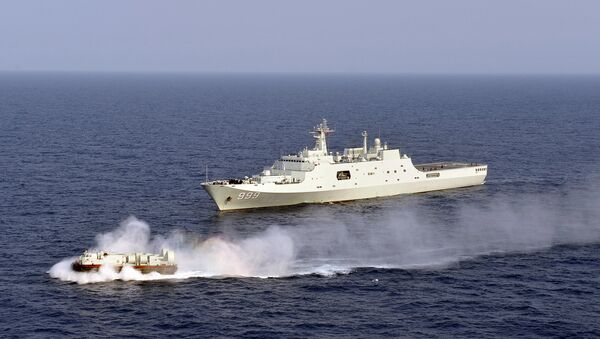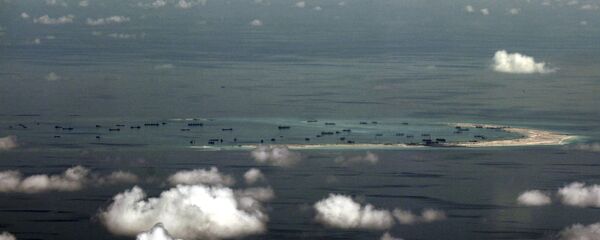We are witnessing a new phase of US-China confrontation in the region, Vietnamese historian Nguyen Manh Ha told Sputnik Vietnam.
Another Vietnamese expert Colonel Le Tkhe Mau believes that the territorial disputes in the South China Sea are one of the most complicated international problems of our time which can be solved only by political means.
“Vietnam will support the actions of the United States and any other country, such as Japan, which will focus on the maintenance of peace and cooperation of the countries in the region. It should be noted that when talking about the freedom of navigation, Americans are protecting their own strategic interests in the Southeast Asia region. An example is the recently signed agreement on the TTP. Japan and Vietnam are two countries in East and Southeast Asia, which have territorial disputes with China. Thus, the US is trying to consolidate its power and influence in the countries of the region.”
China and the United States are geopolitical rivals for control of Southeast Asia, says well-known Russian professor and head of the department of history of East Asia at the St. Petersburg State University Professor Vladimir Kolotov.
“Both the parties are only there to protect their own interests, trying to use small and medium-sized countries of Southeast Asia. Protecting the freedom of navigation is a pretext that the US is used to using in order to increase its influence in the region.”
There is a significant portion of small and medium-sized countries in Southeast Asia which support strengthening the US military presence in the region, believing that in this way they will be able to protect themselves from China.
But Kolotov said that he thinks that will not happen.
“If you look at history, the US itself helped the Chinese establish control over both the Paracel Islands belonging to Vietnam in 1974, and the Spratly Islands in 1988.”
They have created this situation, and now the US does not recognize these islands belong to Vietnam. For small and medium-sized countries in the region sovereignty is important and not the freedom of navigation. But for the US it is important to increase its influence in this region of the world. It is a pretext for saber-rattling and muscle-flexing.
“As far as trade and the mutual interests are concerned, it will not lead to a serious conflict: neither Chinese nor American blood will spill. Both countries will use this situation to gain influence in Southeast Asia and the United States. Geopolitical pressures are increasing and it is very dangerous to the sovereignty of the countries in the region.”



